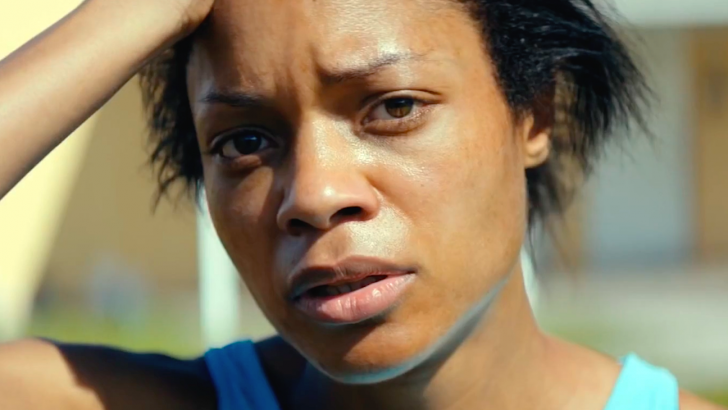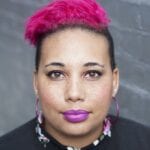Barry Jenkins’ Moonlight is a poignant and heart-wrenching story of living, loving and longing as a black queer man in America. It is also sadly unfulfilling.
The film is undoubtedly beautiful and moving but — and I am scared to admit this because I want so much to love and recommend the work of a black director, filled with incredible black actors — ultimately Moonlight is just another story of black pain.
Each scene in the film is evocative, cinematically profound and flawlessly performed, but the overarching story teaches me that to be black and queer is to live in self-doubt and loneliness, to be surrounded by violence and to know fear better than you will ever know love.
The film follows Chiron through three pivotal periods of his life, each one a telling narrative of the struggles, strife and occasionally small joys of navigating a world of poverty, abuse, homophobia and loneliness.
In part one, young Chiron (Alex Hibbert) spends his time fighting off bullies both at home and at school. His friends call him “Little” — the first of many displays of emasculation that make Chiron a target of his macho peers in the age-old American war of manhood. One day, he’s found hiding from his predators by Juan (Mahershala Ali), a caring man who, along with his partner, Teresa (Janelle Monae), becomes like an adoptive family to Chiron.

Chiron soon asks Juan and Theresa if he is a “faggot,” a word often yelled at him by his mother and peers. Juan replies, “You could be gay, but you don’t gotta let people call you a faggot.”
I was surprised, as were many of the moviegoers around me, who let out a sigh of relief and aww-ed at Juan’s interaction. Why are we surprised that a black man could show such unflinching compassion towards a young gay boy? Probably because, as Chimamanda Ngozi Adichie teaches us in her famous TED talk, The Danger of a Single Story, we have been given, through media, history and academia, such a damagingly narrow idea of what blackness is that we are shocked by anything to the contrary.
As Chiron grows into a teenager (now played by Ashton Sanders), his family life is split between his manipulative and abusive mother, who is still in the clutches of addiction, and the loving, but now widowed, Teresa who continues to provide him with a safe haven. The juxtaposition between Paula (Naomie Harris, Chiron’s mother) and Teresa is a hard one to digest. Their differences are black and white — literally.
Paula represents all the stereotypes of African American poverty: a single, low-income mother who occasionally uses sex work to fund her drug addiction. Teresa, while having connections to drug dealing, is a well-dressed middle-class woman with a good weave and ultra (white) American clothes like plaid and chinos.
A24/Youtube
In some ways it reminds me of The Blind Side, where Sandra Bullock’s character builds an annoying white saviour complex when she “saves” her son-to-be from the gun-wielding, gang-ridden, drug-dealing community of the projects.
While there was an obvious effort here to keep this film black-centred (the lack of white people had me momentarily wondering if the story was even set in the US), it was sad to see internalized racism play a part in upholding whiteness or conformity to white standards. As a black writer myself, I understand the complexity of the unconscious ways that my mind and my words still tilt towards a celebration of whiteness and a persecution of black joy.
The portrayal of Paula, while drawing attention to the realities of some poor communities in the US, is an exaggerated cliché that many white audiences may take as confirmation of their preconceived stereotypes about black women; poor, angry, addicted, promiscuous, homophobic. While pivotal to Chiron’s inner strength and resilience, it makes me wonder why we are not allowed to see black families that are happy, and especially ones that are supportive of their queer children.

Why can Chiron only find happiness by giving up everything he calls home? Why does he have to seek whiteness to seek validation?
In this volatile and challenging chapter of his life, Chiron also experiences his first sexual encounter during his high school years. After a deep and meaningful conversation with his best friend Kevin (Jharrel Jerome) on a moonlit beach, the two kiss and touch each other passionately. To Chiron, this moment means everything: a confirmation of his sexuality, a fulfilment of his life-long crush on Kevin and a release of pent-up teenage sexual frustration.
But the next day the school bullies corner him. The gang convinces Kevin to kick Chiron until he’s unconscious and although you can see the guilt and pity in his eyes, Kevin complies. The peer pressure to be a strong and macho man overrides Kevin’s ability to be a compassionate and loyal friend (and possibly lover) to Chiron.
Too often, masculinity in the Western imaginary is not a rite of passage to being a good father or caring spouse or friend, but a battle of peer pressure and toxic gender norms that force young men, like Chiron and Kevin, to compete and ultimately hurt one another.

In the final chapter of the film, Chiron is fully grown man (played by Trevante Rhodes). He has shed his awkward, gangly teenage frame and poor Miami dwellings in exchange for a handsomely ripped torso and a fancy apartment. Although it is 10 years later, his wet dreams are still hounded by the night he spent on the beach with his best friend Kevin. It is the first and only time he has been touched; he has since lived a solitary life.
Out of the blue, Kevin calls Chiron. They meet up at the diner where Kevin (now played by André Holland) works and share a bottle of wine. They don’t say much, as Chiron never does, but the sexual tension is explosive. We can only imagine that Chiron has longed to be kissed by his first love again but has remained in the closet all these years.
Finally the two return to Kevin’s house for what I assumed would be a night of fiery and erotic sex, fuelled by two decades of lustful longing. Instead the film ends with Kevin patting Chiron gently on the head.
Yes, you got that right, we followed Chiron’s journey for over 20 years, felt his heartbreak, his pubescent desire for sex, his bittersweet yet carnally charged reunion with Kevin — and at the end we are left with the most undeserved let-down of all time. Why do queer people of colour not get a Pride and Prejudice/Notebook/Love Actually happy ending?

None of this is to say that you should not watch Moonlight — you should. But if you are white, proceed with the knowledge that blackness is not monolithic and it is not a single story. There are so many other narratives for black queer people that don’t fall into this trope.
And if you are a person of colour, particularly a black queer person, know that there are other journeys for you, there are reasons you are loveable and you deserve the happiest of endings — and all the sexual fulfilment you desire.


 Why you can trust Xtra
Why you can trust Xtra


